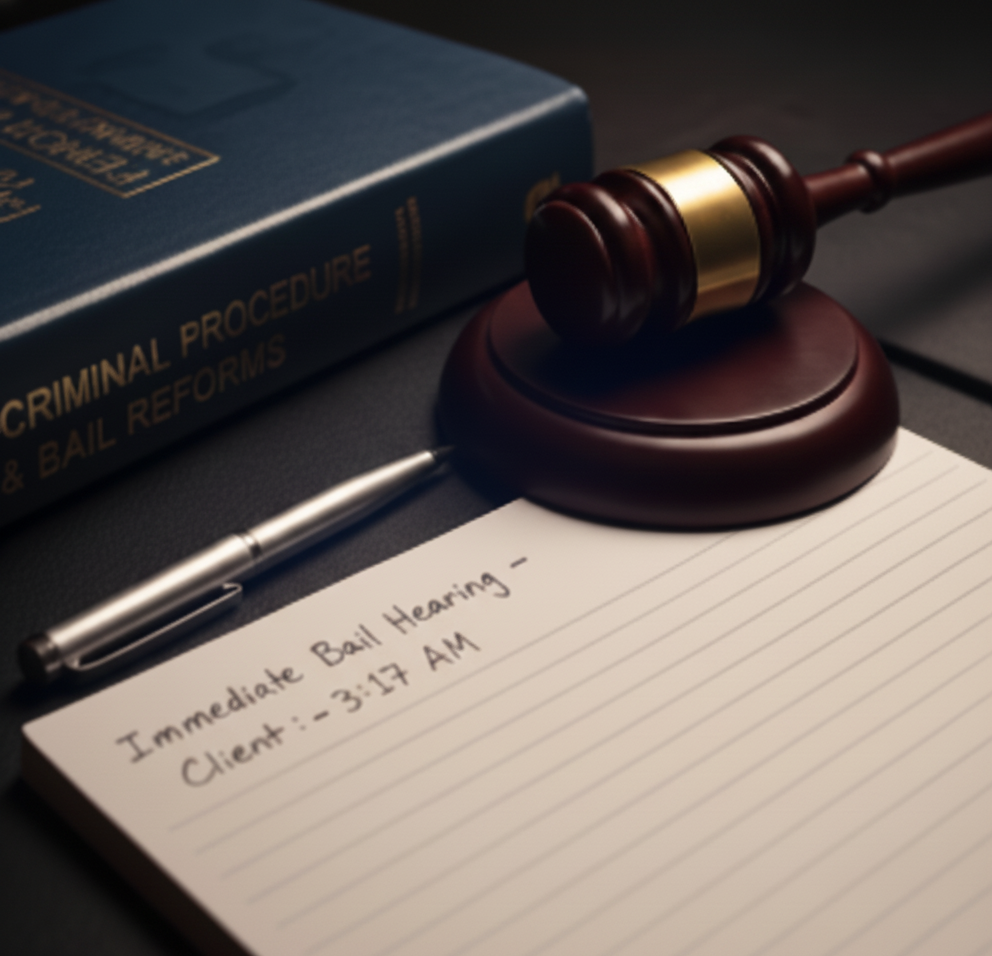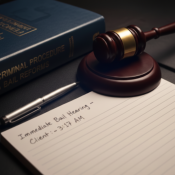
Custody No More: A Practical Guide to Bail Matters
Bail is one of the most important safeguards in the criminal justice system. It protects an individual’s liberty while ensuring their presence during court proceedings. For anyone facing criminal allegations—or supporting someone who is—understanding how bail works can make the process less stressful and more predictable.
This article provides a simple, practical guide to bail: what it is, how it works, the different types, and the legal rights every person should know.
What Is Bail?
Bail is a legal process that allows an accused person to be released from custody while their case is pending. Instead of remaining in jail, the accused is allowed to return home under certain conditions, such as paying a bond or promising to obey the law.
The purpose of bail is simple:
To protect personal liberty, and
To ensure that the accused appears in court whenever required.
Bail does not mean a person is innocent or guilty—it only ensures freedom during the trial.
Why Bail Is Important
Bail is essential because:
It prevents unnecessary imprisonment.
It protects the constitutional right to personal liberty under Article 21.
It allows the accused to continue work, support their family, and prepare their defence.
It reduces overcrowding in jails.
It prevents stigma and mental trauma of jail before conviction.
In short, bail ensures justice is fair and balanced.
Types of Bail in India
The Criminal Procedure Code (CrPC) provides three main types of bail:
1. Regular Bail (Section 437/439 CrPC)
Regular bail is granted after a person has been arrested and taken into custody.
It is commonly applied before Magistrate or Sessions Court depending on the offence.
2. Anticipatory Bail (Section 438 CrPC)
Anticipatory bail is taken before arrest, when someone fears they may be arrested for a non-bailable offence.
It protects the accused from unnecessary custody.
3. Interim Bail
Interim bail is temporary, granted for a short period till the court decides on regular or anticipatory bail.
Bailable vs Non-Bailable Offences
Bailable Offence
Bail is a right.
Police or the court must grant bail.
Examples: Minor theft, simple hurt, defamation.
Non-Bailable Offence
Bail is not a right, but a matter of judicial discretion.
The court examines the circumstances before granting bail.
Examples: Rape, murder, economic offences, POCSO offences.
Who Can Grant Bail?
Depending on the stage and seriousness of the case, bail may be granted by:
Police Station (for bailable offences)
Magistrate Court
Sessions Court
High Court
For serious offences like NDPS, PMLA, UAPA, ED/CBI matters, bail is mostly handled by higher courts.
Factors Courts Consider Before Granting Bail
Courts follow key principles while deciding bail applications:
Nature and severity of the offence
Possibility of the accused fleeing from justice
Chances of tampering with evidence
Past criminal record
Health, age, and employment status
Cooperation with the investigation
Whether the accused is the main or minor role player
The aim is to balance the rights of the accused with the interests of justice.
Conditions Imposed During Bail
The court may impose conditions such as:
Appearing before the court on every date
Not leaving the city/country without permission
Not threatening or influencing witnesses
Providing sureties or bail bonds
Reporting to the police station periodically
These conditions ensure discipline while allowing personal freedom.
How to Apply for Bail — Step-by-Step
1. Engage a Lawyer
A legal professional prepares the bail application based on facts and law.
2. Drafting the Bail Application
The application includes:
Case details
Grounds for bail
Personal background
Legal arguments
Assurance of cooperation
3. Filing Before the Appropriate Court
Depending on the offence, the application is filed before:
Magistrate
Sessions Court
High Court
4. Court Hearing
Both sides present arguments:
Defence argues for liberty and cooperation.
Prosecution highlights risks such as absconding or evidence tampering.
5. Order of the Court
The court may:
Grant bail
Deny bail
Grant interim bail
Impose conditions
Once bail is granted, the accused is released after submitting the bond and sureties.
When Can Bail Be Denied?
The court may refuse bail in cases where:
The offence is extremely serious (e.g., murder, terrorism).
The accused may flee or hide.
There is a risk of influencing witnesses.
The accused has a criminal history.
Evidence strongly supports the prosecution.
Even then, bail can be reapplied later with new grounds.
Special Bail Situations
1. Women, Children & Sick Persons
Courts often take a lenient view as per humanitarian principles.
2. Bail in Economic Offences
Cases like PMLA, ED matters, fraud, money laundering, NDPS require stronger grounds due to stringent laws.
3. Default Bail (Section 167 CrPC)
If the police fail to complete the investigation within:
60 days (ordinary offences)
90 days (serious offences)
The accused gets an absolute right to bail.
Your Rights During Bail Proceedings
Every person has the right to:
Know the grounds of arrest
Consult a lawyer
Apply for bail
Get a fair hearing
Not be detained unnecessarily
The Constitution protects liberty above all else.
Practical Tips for Bail Applicants
Always cooperate with police and court.
Do not panic—bail is a legal right, not a special favour.
Maintain clean records and proper documentation.
Never violate bail conditions; it can lead to cancellation.
Stay in contact with your lawyer for updates.
Conclusion
Bail is more than just a legal procedure—it’s a powerful safeguard that protects personal liberty and prevents unnecessary imprisonment. Understanding how bail works helps individuals handle legal challenges with clarity and confidence.
With the right legal guidance and awareness, “custody no more” becomes a real possibility, ensuring justice remains fair, humane, and accessible to all.
All Categories
Recent Posts
Custody No More: A Practical Guide to Bail Matters
Tags





